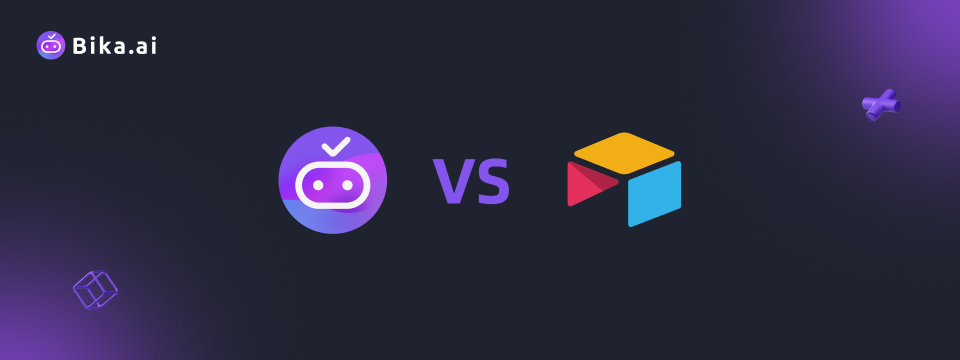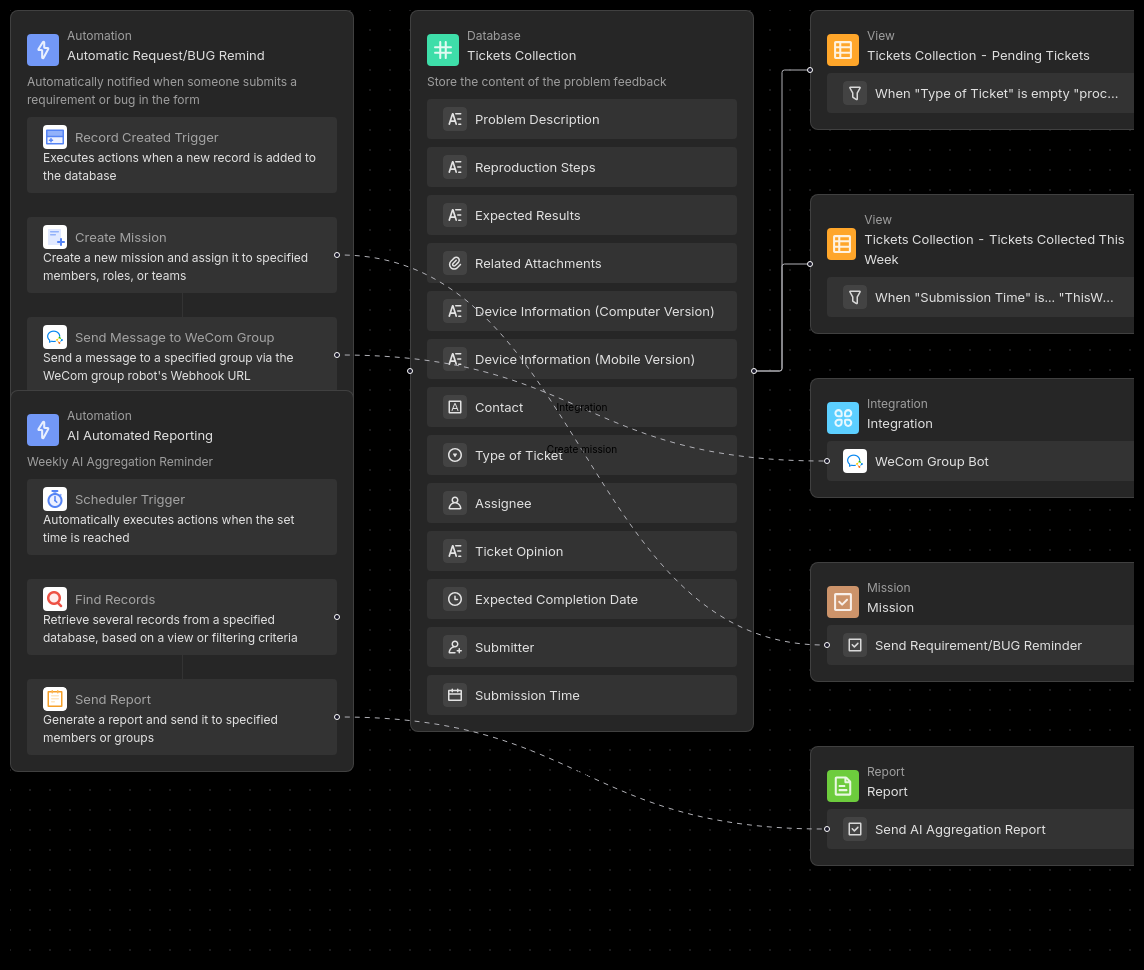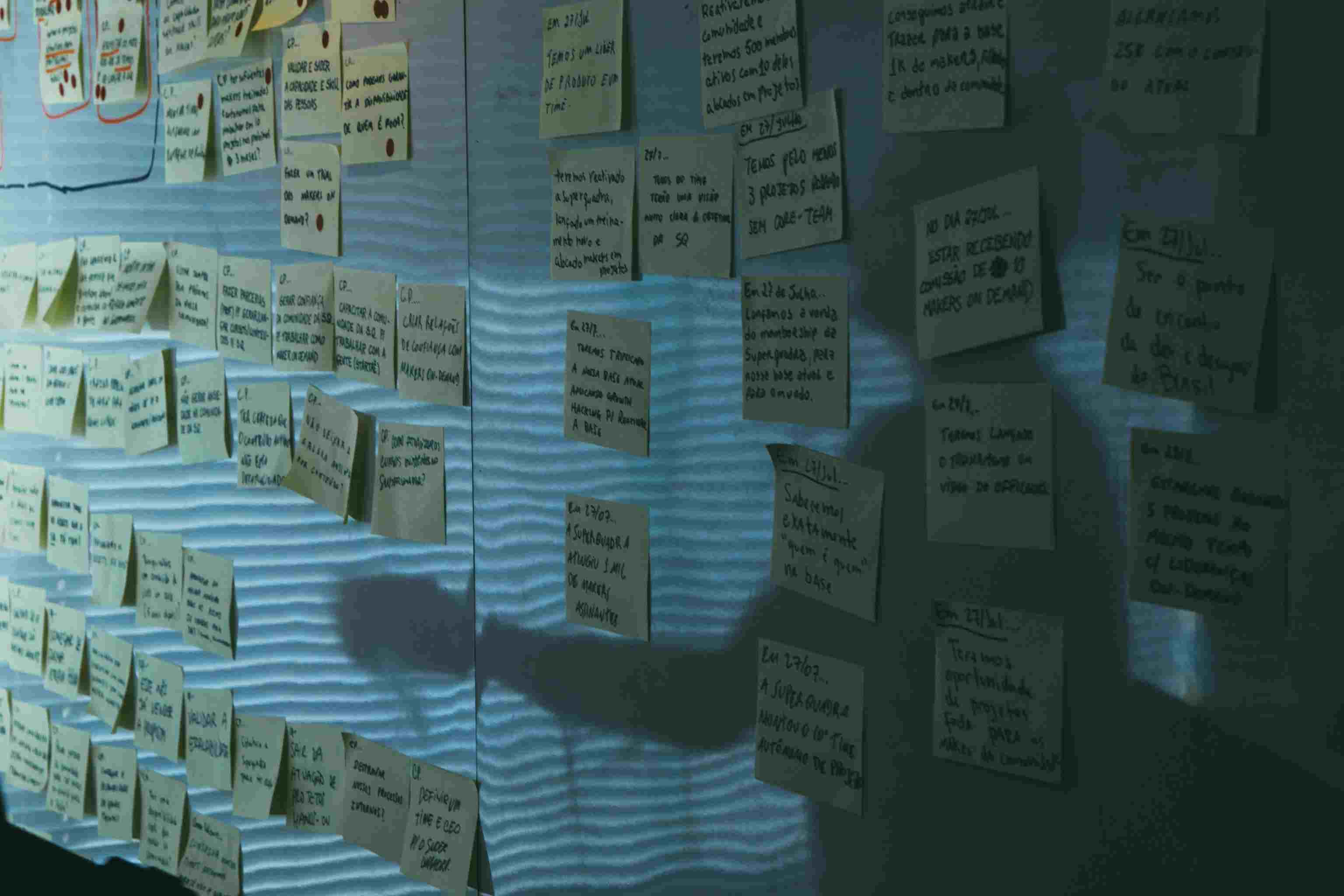
Airtable Pricing vs. Bika.ai Pricing: Which is More Advantageous for Product Owner?
When It Comes to Choosing a Tool for AI Project Issues and Tickets Automation, What Matters Most?
When a Product Owner is on the hunt for a tool to build automated workflows for AI Project Issues and Tickets, there are several factors that should cross their mind. It's easy to assume that as long as the tool fulfills the functional requirements, the job is done. But let's be real here, pricing is a huge deal and often a make-or-break factor. Airtable is a popular choice for automation, but does its pricing really fit your budget and expectations? Maybe it's time to compare Airtable and Bika.ai in depth, covering aspects like pricing and functionality, to make a smarter choice.
What are Airtable & Bika.ai?
Airtable is a cloud-based platform that combines the simplicity of a spreadsheet with the power of a database. It's designed to help you organize content, track projects, and manage tasks. However, it has its challenges. The base structure can be complex for new users, it may struggle with large datasets, and its automation features could use some improvement.
Bika.ai, on the other hand, is a no-code AI automation database. It offers an easy-to-use platform with enhanced CRM, marketing automation, project management, BI, and ERP capabilities, all at an attractive price.
Airtable vs Bika.ai: Key Features At a Glance
Let's take a quick look at how Airtable and Bika.ai stack up against each other on some key features:
| Feature | Airtable | Bika.ai |
|---|---|---|
| Pricing | Free provided, paid plans from $20/user/month | Free provided, paid plans from $9.99/user/month |
| Platform Type | No-code database | No-code AI automation database |
| Ease of Use | Base structure is geeky for non-tech users | Directory tree is easy to use and user-friendly for general users |
| Records per Database | Up to 125,000 records per base for Business plan | Up to 1,500,000 records per database for Team plan |
| Automation | Basic automation capabilities with limited triggers and actions | Advanced automation capabilities with extensive triggers and actions |
| Template | Templates don’t include automation capability; no automation publish and share | plenty of plug-and-play AI automated templates with preset content; supports automation publish and share |
| Storage | 100 GB of attachments per base | 800 GB per space |
| API | Limited APIs | API-first platform making every feature an integration endpoint for automation |
Pricing Comparison of Airtable vs Bika.ai
Now, let's dive into the pricing details of both Airtable and Bika.ai:
Airtable’s price plans
| Plan | Features | Price |
|---|---|---|
| Free plan | Unlimited bases 1,000 records per base Up to 5 editors 1 GB of attachments per base 100 automation runs Interface Designer | Free |
| Team plan | 50,000 records per base 25,000 automation runs 20 GB of attachments per base Standard sync integrations Extensions Gantt and timeline view Expanded color, formatting, and calendar options | $20 per user per month |
| Business plan | 125,000 records per base 100,000 automation runs 100 GB of attachments per base Premium sync integrations Verified data Two-way sync Admin panel SAML-based single sign-on | $45 per user per month |
| Enterprise plan | 500,000 records per base 500,000 automation runs 1,000 GB of attachments per base On-premises sync integrations Enterprise Hub Enhanced security and admin controls Enterprise API Extension and integration management Audit logs and DLP | Pricing on request (estimated to start at $70 up to $100 per user per month) |
Bika.ai’s price plans
| Plan | Features | Price |
|---|---|---|
| Free plan | 5GB of storage 10,000 records per database 200 automation runs Missions, Reports, AI Summary, and more Free Send Bulk 100+ SMS / 1000+ Email OpenAPI Access | Free |
| Plus plan | 50GB of storage 100,000 records per database 30,000 automation runs Permissions control More database fields, automation actions More free SMS, Email, Reports, Missions, AI | $9.99 per user per month |
| Pro plan | 200GB of storage 500,000 records per database 60,000 automation runs IM / Email Support Team / Organization Advanced OpenAPI and AI models | $19.99 per user per month |
| Team plan | 800GB of storage 1,500,000 records per database 100,000 automation runs Audit Logs Full integrations, automations Advanced Permissions | $39.99 per user per month |
It's clear that Bika.ai offers a more cost-effective option for many teams, especially when you consider the features and value it provides.

Why Choose Bika.ai Over Airtable for Product Owner?
If you're a Product Owner, there are several compelling reasons to go with Bika.ai:
First off, Bika.ai's AI-driven workflow processing can seriously cut down on those time-consuming manual tasks, boosting your efficiency. Saving and sharing automation capabilities means rapid business development and a major boost in team effectiveness.
Handling large amounts of data is a breeze in the AI era with Bika.ai. And let's not forget the plug-and-play setup for automation, which simplifies your work and saves you precious time and resources.
Specific examples include submitting bug reports, requesting new features, tracking ticket status, assigning tickets, sending progress updates, automated reminders, creating test cases, verifying bug fixes, conducting regression tests, providing QA feedback, ensuring product quality, developer-QA collaboration, collecting requirements, prioritizing features, managing backlog, integrating customer feedback, planning sprints, monitoring development, logging customer issues, escalating critical tickets, analyzing feedback, communicating status updates, tracking user satisfaction, generating reports, monitoring metrics, prioritizing tasks, allocating resources, tracking milestones, reporting progress, preparing documentation, identifying improvements, facilitating collaboration, tracking project progress, and resolving issues.

How to Use Bika.ai's AI Project Issues and Tickets Template?
The AI Project Issues and Tickets template from Bika.ai is a game-changer. Here's how to make the most of it:
- Install the template into your Bika Space. If you have multiple projects, you can install it multiple times.
- Enter new feedback directly in the form. The submitted data will be automatically recorded in the database.
- Configure the automation tasks to meet your specific needs.
- Test the automation tasks to ensure they're working as expected.
- Once everything's set, start the automation tasks and let Bika.ai handle the rest.
Conclusion
In the end, when it comes to building automated workflows for AI Project Issues and Tickets, Bika.ai emerges as a strong contender. With its cost-effective pricing, powerful features, and user-friendly interface, it's well worth considering. Use this automation template to solve your specific scenario challenges and take your project management to the next level.

Recommend Reading
- Bika.ai vs Airtable: To Financial Data Integration
- Airtable Pricing vs. Bika.ai Pricing: Which is More Advantageous for Celebrate project milestones?
- Solve Track Birthday Campaign Success with Bika.ai's Automated Template
- Data Automation with Bika.ai: Unlocking New Potential for AI Video Generation from Script in Simplify video editing
- Slack Channel Scheduled Notifications: Airtable Alternative to Milestone achievement reminders
Recommend AI Automation Templates




